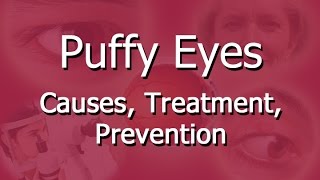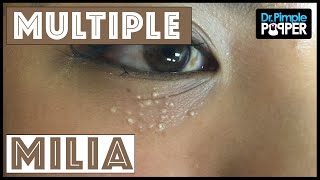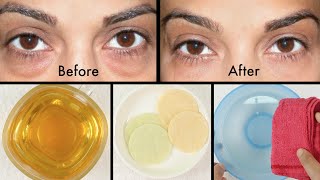Tuesday, 13 January, 2026г.
















Где искать: по сайтам Запорожской области, статьи, видео ролики
пример: покупка автомобиля в Запорожье
Puffy Eyes Causes, Treatment, Prevention
Puffy Eyes - Causes, Treatment, Prevention
What causes puffy eyes? Puffiness under the eyes is also commonly known as swollen eyes. The term puffy eyes can also be used to describe swollen eyelids. It should be noted however that puffy eyes and bags under the eyes are not the same thing, at least medically speaking.
The most common cause of puffiness under the eyes is lack of sleep or stress. When that's the case, the simplest remedy is rest and relaxation.
But someone with puffy eyes may also have an eye infection. Irritation, inflammation, allergies, environmental pollutants and injuries can cause puffy eyes too.
Puffiness under the eyes is often a short term problem, but under certain circumstances, it can turn into a long term threat to eye health. It could be a symptom of an eye disease.
So check with your doctor for a professional opinion if puffiness lasts more than a day or two, or you're experiencing eye pain or eye discharge along with the puffiness.
Here's a short list of the most common causes for puffy eyes and swollen eyelids.
The most obvious - and practically doesn't even need to be mentioned - is fatigue and lack of sleep. Overuse of alcohol can also be a cause.
Eye injury, trauma or damage almost always causes puffy eyes.. A blow to the eye or an abrasion on the cornea can trigger swelling and puffiness.
As previously mentioned, many people suffer from various allergies that result in red eyes, itchy eyes, puffiness, swelling, and irritation. A condition called allergic rhinitis is common for those who are sensitive to pollen, seasonal changes, house dust-mites, molds, pet dander or pet hair.
Cosmetics and make up that are used near or around the eyes can trigger puffiness in certain individuals. This can include perfume.
There's a lot in the air that can cause puffy eyes: dirt, dust, grit, smog and other forms of air pollution.
Conditions like pink eye (also known as conjunctivitis) are a sure cause of puffiness and itching.
Health conditions afflicting other parts of the body can sometimes affect the eyes. These include measles, diabetes, irritable bowel syndrome (IBS) and lupus. Even arthritis can sometimes cause puffing and swelling. There are a number of sexually transmitted diseases that cause puffy eyes, including herpes.
Some people who overuse certain types of medications can get puffy eyes.
Eye puffiness is not the same as bulging eyes, which may be the result of a thyroid problem known as Graves' disease.
Still other causes include dirty contact lenses or certain lens cleaning solutions. Eye surgery can cause puffiness, but of course, this is usually temporary.
Puffy eyes may be a symptom of a vitamin deficiency, especially vitamin A.
Treating puffy eyes If the cause is obvious (fatigue or over indulgence in alcohol), the treatment is also obvious: time and rest.
Compresses may help. Cold compresses reduce the swelling, while warm compresses may relieve any discomfort or pain. Make certain the cloth you use for the compress is clean. Use boiled water or purified water only.
Sometimes antibiotic eye lotions and drops, over the counter solutions, antihistamine tablets and corticosteroids may be in order. Be sure to talk to your doctor about possible side effects.
There are a number of creams available commercially. They may provide a temporary fix and it's not hard to find one by doing an Internet search. They’re produced by several reliable and well-known cosmetics manufacturers.
Похожие видео
Мой аккаунт


 У вашего броузера проблема в совместимости с HTML5
У вашего броузера проблема в совместимости с HTML5


